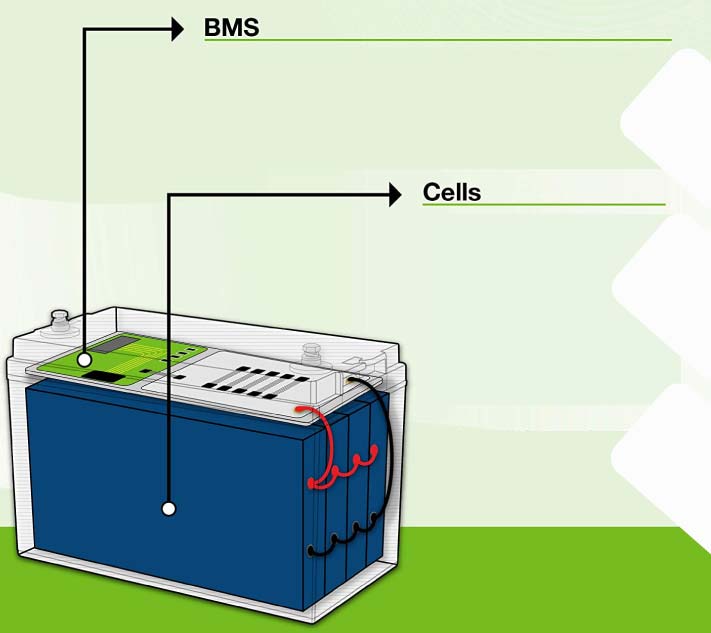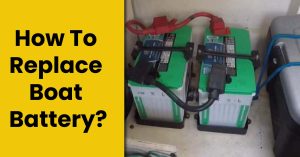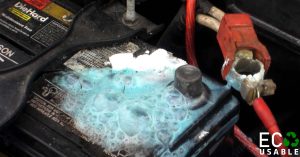How Long Does a Lithium Battery Last? [PROS & CONS]
In this article, I have explained how long does a lithium battery last, what is average lifespan, how many charge cycles can you expect, and how to extend the battery life.
For a long time, old nickel-cadmium or lead acid batteries have been the “go-to” power source for electronics, power tools, and other equipment. However, lack of safety features and efficiency has been the issue with these batteries.
In 1991, the first lithium-ion battery was developed which was more efficient than a regular nickel-cadmium battery. Later, the technology improved and lithium-ion batteries were made with more than 95% charging efficiency compared to 80% charging efficiency of lead-acid batteries according to energy sage news.
But, the important question remains, how long does a Lithium Battery Last while used for commercial, industrial, or residential use?
According to the Journal of power sources, the average lifespan of lithium-ion batteries is 300 to 500 charge cycles or 2 to 3 years. This number may vary depending on the temperature and load. The lifespan also increases if you don’t drain the battery completely or overload it. Use about 80 to 85% capacity.
What is a Lithium-ion Battery?

A lithium-ion cell consists of lithium ions that move from the negative electrode to the positive electrode rapidly. A lithium-ion battery contains single or multiple lithium-ion cells. These batteries last longer, charge faster, and have higher power density packed in a lighter body.
Lithium-ion batteries have a shelf life of 3 to 5 years with 2 to 5% self-discharge per month. To minimize the self-discharge rate and maximize efficiency, keep it away from high-temperature areas. The safe temperature for these batteries is between -20 to 55 degree Celsius.
There is no cool-down period for lithium-ion batteries. You can use it for 8 or more hours on a charge and it will take under 2 hours to last another 8 or more hours without cooling off.
It is also important always keep these partially charged. If they are drained to extremely low charges or zero, it may reduce their lifespan.
Some of the top lithium-ion batteries have been reviewed in our marine batteries article.
What is the Lifespan of Lithium-ion Batteries in Storage?
The storage lifespan of a lithium-ion battery depends on several factors what as the state of charge when it was put on the shelf, and the surrounding temperature of the storage.
If the battery is stored correctly, the shelf life is 3 to 6 years. This figure may increase if the temperature surrounding the battery is not unbearable.
How Many Charges Can You Expect to Get from Lithium-ion Batteries?
To under the answer to this question, first, we gotta learn exactly is a charge cycle.
The most logical definition of a charge cycle is complete charges and discharges of a battery before it can no longer have the ability to hold a charge.
Some manufacturers define the charge cycle as the number of charges every time you charge a battery regardless of how many charges the battery needs.
Some batteries like Lossigy LifePo4 200Ah can give as many as 5000 charge cycles, but normally from smaller lithium-ion batteries, you should expect 700 to 1000 charge cycles.
How to Increase the Lifespan of a Lithium Ion Battery?
What are the Pros and Cons of Lithium-Ion Batteries?
Frequently Asked Questions – FAQs
Do lithium-ion batteries last longer than regular batteries?
Lithium-ion batteries are designed to last longer and charge faster which is why they are mostly used in smart tech, heavy-duty machines, and off-grid operations.
How long can a 20V lithium battery last?
A 20V lithium battery can hold the charge for 2 – 8 hours depending on the temperature, and size of the battery.
How long does an 18V 4A lithium-ion battery last?
The average lifespan of an 18V 4A lithium-ion battery is 4 to 5 years. The number can increase with proper care.
How long do lithium-ion batteries last in a golf cart?
The average lifespan of a lithium-ion battery in a golf cart is 3 to 5 years with more than 2000 charge cycles. This is way more than any normal lead-acid battery.

Alex Black is a seasoned electrical engineer with a remarkable 8-year track record specializing in appliances, generators, and transfer switches. With extensive hands-on experience in the field, Alex possesses a deep understanding of electrical systems and their intricate workings. Throughout their career, Alex has consistently demonstrated expertise in designing, troubleshooting, and maintaining various electrical appliances.






